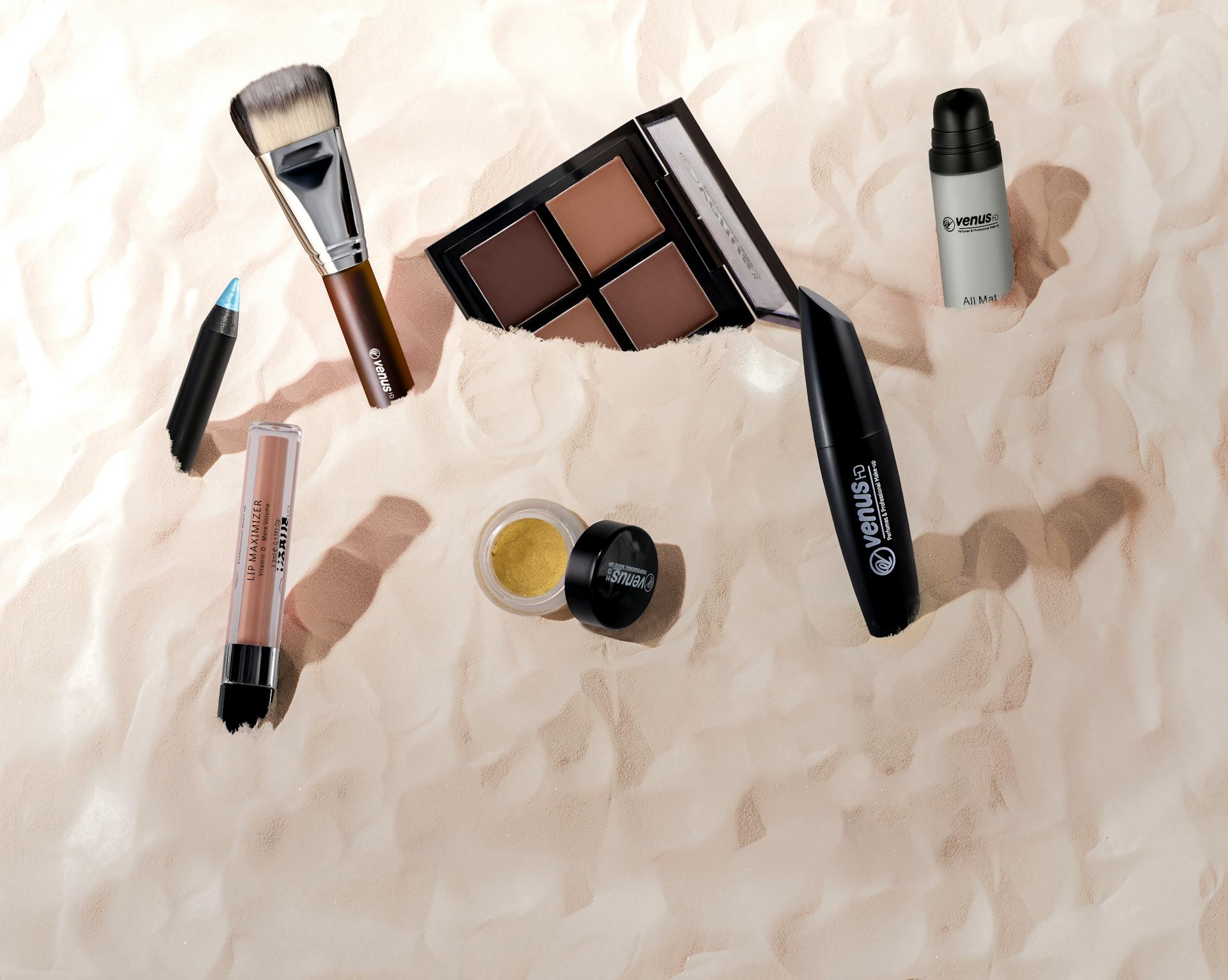
Skincare and makeup go hand in hand, but not all skincare ingredients are created equal when it comes to preparing your skin for makeup application. Some ingredients can cause pilling, breakouts, or make your makeup wear off faster. To ensure your makeup applies smoothly and lasts all day, it’s important to know which skincare ingredients to avoid before reaching for your foundation. In this guide, we’ll break down the ingredients that may interfere with your makeup and suggest alternatives to keep your skin healthy and your makeup flawless.
Why Some Skincare Ingredients Don’t Mix Well with Makeup
Certain skincare ingredients, while great for overall skin health, can disrupt the texture and longevity of your makeup. Some ingredients create a slippery surface, causing foundation to slide off, while others may cause your makeup to clump or pill. Understanding which ingredients are best used at night or on makeup-free days will help you create a perfect base for makeup.
Skincare Ingredients to Avoid Before Applying Makeup
- Heavy Oils
- Why it’s problematic: While oils can be great for hydrating the skin, using a heavy oil before applying makeup can make your skin too slick. This can cause foundation to slide off or prevent it from properly adhering to your skin.
- Better alternative: If you love oils, opt for lightweight, fast-absorbing facial oils like jojoba or rosehip oil, which hydrate without leaving a greasy residue.
- Tip: Use oils in your nighttime routine instead, where they can nourish your skin while you sleep.
- Silicone-Based Products
- Why it’s problematic: Silicone-based products, such as primers or moisturizers, can create a barrier on the skin. While this may sound beneficial, using too much silicone can lead to product buildup and pilling, especially when layering makeup.
- Better alternative: Opt for water-based or gel-based products that provide hydration without the risk of pilling. If you do prefer silicone primers, use them sparingly and only on areas with visible pores or texture.
- Tip: Check your products’ ingredient lists for words like “dimethicone” or “cyclopentasiloxane,” which indicate silicone content.
- Rich, Thick Creams
- Why it’s problematic: Thick creams, while deeply moisturizing, can take a long time to fully absorb into the skin. Applying makeup over a heavy cream can lead to uneven texture, creasing, and sliding, especially in hot or humid weather.
- Better alternative: For daytime use, switch to a lightweight, hydrating moisturizer that absorbs quickly and provides a smooth base for makeup, such as gel moisturizers.
- Product Recommendation: Neutrogena Hydro Boost Water Gel offers lightweight hydration without affecting your makeup’s finish.
- Acids (AHAs/BHAs)
- Why it’s problematic: Acids like glycolic acid (AHA) and salicylic acid (BHA) are amazing for exfoliating the skin and treating acne, but they can cause irritation, dryness, or make your skin sensitive to sun exposure. Applying makeup over freshly exfoliated skin can emphasize dry patches or cause flaking.
- Better alternative: Use exfoliating acids at night to allow your skin to recover and repair overnight. If you need gentle exfoliation during the day, consider using a mild PHA (polyhydroxy acid), which is less irritating.
- Tip: Always follow up exfoliating acids with sunscreen if using them during the day.
- Retinol and Retinoids
- Why it’s problematic: Retinoids and retinol are powerful anti-aging ingredients, but they can make your skin more sensitive, dry, and prone to peeling. Applying makeup over skin treated with retinoids may result in flaky, uneven coverage.
- Better alternative: Save retinol for your nighttime skincare routine and use a vitamin C serum during the day to brighten your complexion without the irritation.
- Tip: If you’ve been using retinol, ensure your skin is well-moisturized before applying makeup to minimize any dry patches.
- Heavy Sunscreens
- Why it’s problematic: Sunscreen is an essential step in any skincare routine, but heavy or greasy sunscreens can cause makeup to slip off or make your skin look shiny. Some sunscreens can also pill under makeup, especially if they’re not absorbed well.
- Better alternative: Opt for a lightweight, mattifying sunscreen that sits well under makeup. Look for sunscreens with a gel or fluid texture for a smooth, non-greasy finish.
- Product Recommendation: Supergoop! Unseen Sunscreen SPF 40 is a weightless, mattifying sunscreen that acts as a great makeup base.
- Essential Oils
- Why it’s problematic: While natural, essential oils like lavender or tea tree oil can sometimes irritate sensitive skin and cause breakouts when used in excess. These oils can also create a film on the skin, which prevents makeup from applying smoothly.
- Better alternative: Use essential oils sparingly, or switch to fragrance-free products to reduce the risk of irritation or interference with your makeup.
- Tip: If you love essential oils for their soothing properties, look for skincare that incorporates these oils in low concentrations alongside hydrating ingredients.
Bonus Tips for a Smooth Makeup Base
- Allow Products to Absorb: After applying your skincare, give each product enough time to fully absorb into your skin before moving on to the next step. This helps prevent pilling and ensures a smooth makeup application.
- Use a Primer: A good primer can act as a barrier between your skincare and makeup, helping everything stay in place and last longer.
- Stick to Lightweight Formulas: Lightweight, hydrating formulas are less likely to interfere with your makeup than thick, rich creams or heavy oils.
Conclusion:
Achieving a flawless makeup look starts with the right skincare routine. By avoiding heavy oils, rich creams, and other skincare ingredients that can disrupt your makeup, you’ll create a smooth, hydrated canvas for your foundation and other products. Stick to lightweight, non-greasy formulas and save the more intensive skincare ingredients for your nighttime routine to ensure your makeup stays fresh and long-lasting.




